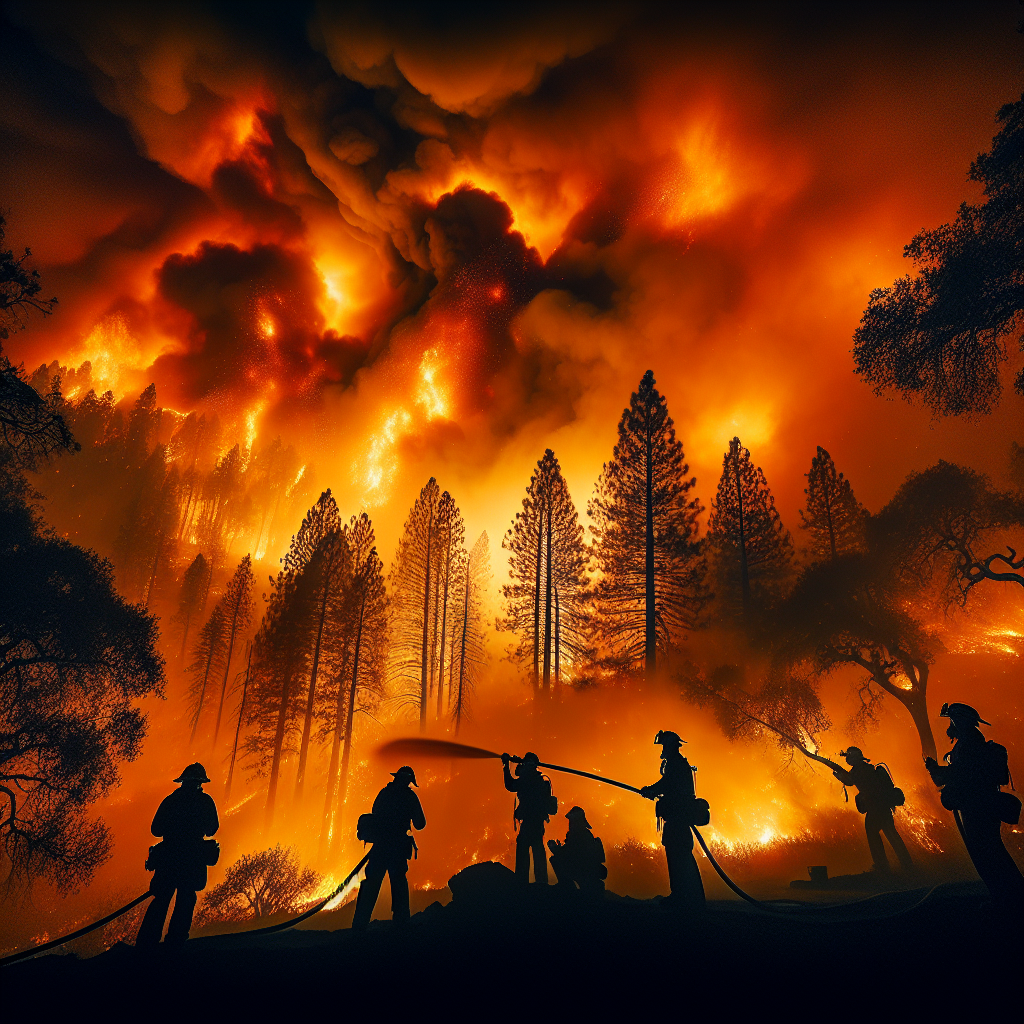January 13, 2025
California’s Wildfire Struggle – A Climate Change Wake-Up Call
Book a Demo
Despite a hefty $4 billion budget allocation and stringent wildfire protection measures, the state of California is falling short in halting the destructive force of wildfires from decimating vast sections of Los Angeles. This ongoing struggle is a stark reminder of the increasing challenge of climate change, not only to California but to the entire country.
The escalating severity of wildfires across the U.S. is a clear indication that even the most prepared regions are grappling to fully acclimate to the enhanced threat of climate change. It raises questions about the effectiveness of current strategies and the need for more innovative solutions to this pressing issue.
In Los Angeles, errors in planning may have contributed to the extensive wildfire damage. These include insufficient warning systems, which fail to provide timely alerts to residents, and dry fire hydrants that hamper firefighting efforts. These vulnerabilities, coupled with the escalating climate crisis, create a dangerous cocktail that fuels the wildfire menace.
One of the contributing factors to these rampaging fires is rising temperatures. The American West is experiencing drier vegetation due to increased heat. This dry vegetation acts as fuel for wildfires, making them more intense and difficult to control. It’s a vicious cycle – the warmer it gets, the drier the vegetation, the harder it is to control the fires.
Another area of concern is the building code in California. The existing code does not address homes and neighborhoods built prior to the implementation of the standards. Many of these structures are located in high-risk fire zones, making them incredibly susceptible to wildfires. Implementing measures to protect these areas is crucial in mitigating the damage caused by wildfires.
The wildfires burning across Southern California are a glaring example of the direct impact of global climate change, primarily driven by the greenhouse gas emissions of major economies, on U.S. interests. It’s a stark reminder of the urgent need to address this global issue with coordinated efforts.
The ‘climate realism’ approach is gaining traction, suggesting that the U.S. needs to gear up for a significant increase in average temperatures. This could lead to more intense wildfires, among other impacts. It is a call to action for all stakeholders to prepare for this new reality.
Despite the looming threat of missing climate targets, there is still hope that the U.S. can circumvent the worst effects of climate change. This could be achieved through innovative decarbonization technologies, policy sharing, and leveraging its military, diplomatic, and economic influence. It is a monumental challenge, but one that is imperative to tackle for the future of our planet.
Science4Data is committed to cut through greenwashing and measure real impact. Join the journey to a sustainable future. Your actions matter.



